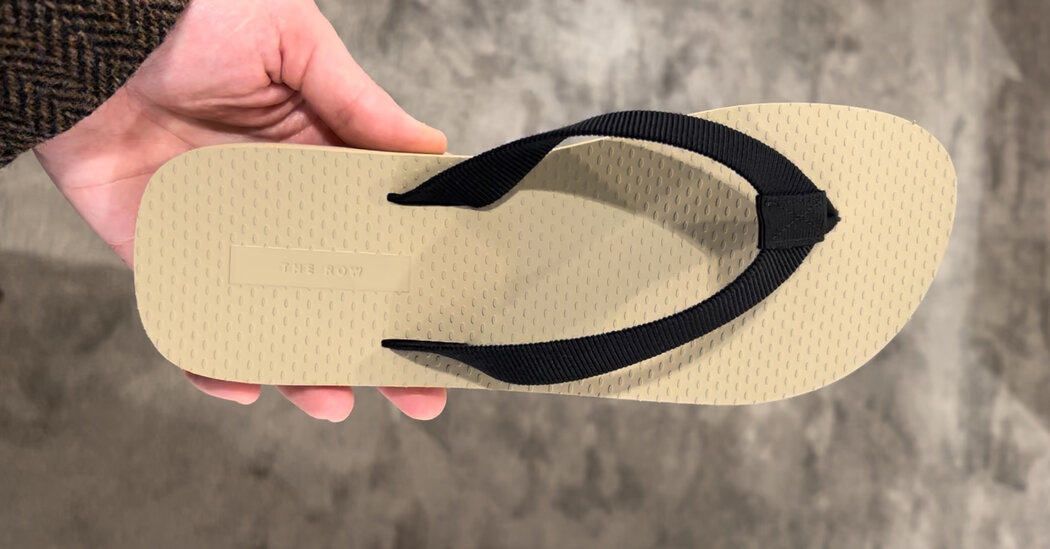
Is the idea of the ‘dream job’ dead?
I want a job that’s just… a job.” Whenever I chat with friends and peers about their careers, whenever that inevitable question of “How’s work?” crops up in the conversation, a refrain that emerges over and over. Whereas once we might have shared our aspirations, talked about potential promotions or side projects, or even discussed how the long hours we were putting in would absolutely, definitely pay off in the end, now, the prevailing mood feels flatter, more jaded. It’s best summed up with a collective shrug.
Many of them, once idealistic about what their careers could offer them, would now struggle to give an answer if asked about their “dream job”. “Why are we expected to put all our hopes and dreams on our work?” asks Rachel*, 26, who works in marketing. She says that she has stopped thinking about her career in terms of an end goal to be reached, or a ladder to ascend, and is more concerned with how her next step would impact her life overall.
Similarly, Jake*, 34, tells me that, after more than a decade in communications, he’s now seeking a role that will allow him more free time and a bit more breathing space, even if it might seem like a step down from the outside. “The ambition just isn’t there for me anymore,” he says. “I want a decent salary, decent hours, and to feel like I’ve got my life back.”
They aren’t the only ones left feeling jaded. Last year, the Chartered Institute of Personnel and Development surveyed more than 5,000 workers for their Good Work Index report, and found that 47 per cent said that a job is just about money, nothing else, up from 38 per cent in 2019. Surprisingly, just 51 per cent said they would be willing to work harder than they had to; again, the percentage had dropped since 2019, down from 57 per cent. The workplace consultancy firm Gallup has also found that job satisfaction has slumped to a record low. The company has branded this phenomenon “the great detachment”, reflecting how workers are increasingly feeling disengaged, even indifferent, towards their jobs.
So is the dream job dead, or at least on the verge of extinction? In order to get our heads around that question, first we need to explore how we came to, well, dream about work in the first place, or, at least, to put work on a pedestal. Tim Duggan, career expert and author of Work Backwards, tells me that we tend to view work in one of three ways: a job, a career and a calling. “A job is when you work primarily for financial gain, a career is when work gives you satisfaction from learning and advancement, and a calling is often framed as the ultimate level to aim towards,” he says. “It’s positioned as a rarified state where you are so intoxicated by the value of what you’re creating that it never feels like hard work.”
The idea of the “dream job” is a relatively new one, says Natasha Stanley, head coach at Careershifters, a company that supports people seeking a career change. She pinpoints the concept as emerging in the wake of the Second World War, in response to a decline in organised religion and the rise of a more individualistic society. “The places we once went to find our sense of purpose were disappearing, so we turned to our work,” she says. “We came to expect our careers to offer not just a mechanism for putting food on the table, but also to provide a supportive community, an enjoyable pastime, moments of joy and a deep sense of existential meaning.”
So, in other words, we started to look to our jobs to provide us with all the fulfilment that, well, our lives outside of work might have previously offered us. No wonder, then, it can feel as if loving your job has come to have an almost moral zeal: it’s as if we’re supposed to believe that being really, really into B2B sales makes you a better person (you only have to look at some of the bizarre, pseudo-spiritual rhetoric being spouted over on LinkedIn to see this play out).
The emphasis on our ideal career starts early on. From childhood, we’re asked: “What do you want to be when you grow up?” by well-meaning adults. My own list of ambitions went from palaeontologist to “the narrator in Andrew Lloyd Webber’s Joseph and the Amazing Technicolour Dreamcoat” to spy before more prosaically landing on journalist. This seemingly innocuous question, though, kicks off a process whereby we’re identified by what we do from nine to five – and defined by our potential work.
Then, as we progress through school, choices such as our GCSEs and the qualifications we opt for after turning 16 tend to be geared towards our career expectations “if you dream of being in a certain niche”, points out careers coach Jenny Holliday. “It can be a positive expectation – after all, we need to be prepared,” she says. And youthful aspiration certainly isn’t a bad thing. “But at the same time, it can mean we are focused on one particular ‘dream job’ role, which then cuts out other possibilities from our minds.”
The places we once went to find our sense of purpose were disappearing, so we turned to our work
Natasha Stanley, head coach at Careershifters
A belief in the ideal of the “dream job”, of course, is very convenient for the people at the top of the corporate food chain: the ones who profit from our willingness to put the extra hours in, to answer emails late at night and generally, to borrow some HR speak, go the extra mile. In fact, the whole concept can be used to hide a multitude of sins. There are entire industries that run on the fact that young, idealistic employees are willing to toil for low pay, because they believe that they’re pursuing their creative passion. Think fashion, film, publishing, journalism, and many, many more (often, these are sectors where it is taken for granted that workers will somehow be able to top up their scant wages with financial support from their families).
Those employees are told, whether explicitly or implicitly, that they’re simply “lucky to be there”, so they should work harder, never complain about any mistreatment – that famous scene from The Devil Wears Prada, in which icy editor Miranda Priestly tells her downtrodden assistant that “a million girls would kill for this job” springs to mind. “The idea of a dream job can be insidious at times, instilling a ‘keep going’ attitude in workers,” says Holliday. “We’ve all been there, myself included – not getting promoted when we feel we should, or not speaking up or ‘pushing back’ to a manager because we feel we are ‘lucky’ to be in the role we’re in.”

Very often, the reality of chasing your goal just doesn’t line up with how you imagined your working life to pan out, as writer Katy Segrove found out. She spent years “totally committed to my dream of writing feature films”, alongside an “intense” day job in TV production. Eventually, she had a script optioned, landed an agent and travelled to Cannes and Los Angeles. Sounds envy-inducing, right? But over time, she found herself falling out of love with it, instead feeling “burnt out and jaded” and simply “exhausted with the whole process”. Work-life balance was non-existent. “Writing in every spare minute wasn’t allowing me to build a life outside of work,” she says. “I needed space to find a romantic partner and have a fuller life, so I had to make changes to allow that to happen.”
She later decided to start writing short episodes of children’s animation, and also set up Pick Up Your Pen, a coaching business supporting other writers; helping them “feels far more meaningful than chasing success for myself”, she says. These days, she adds, she is “much more mindful about how I use my time, and what supports my mental and physical health. I’m also really interested in what actually makes us happy – which is often not what we expect.”
For many, the pandemic shook up long-held beliefs around what we actually want from our careers and from the rest of our lives. When lockdown made working from home a necessity for office workers, some people “had more time to dedicate to different parts of their life”, Stanley says, “so family time, hobbies and social contribution all felt freshly important. Instead of [being] the crowning glory of our lives, work regained its place as one piece of the pie.”
Since then, though, it has started to feel as if a gulf has opened up between workers and their employers. Workers have seen the advantages of adopting a hybrid approach, mixing a few days in the office with some time at home, but many companies are now enforcing return-to-the-office rules, rolling back previous promises they’d made about flexibility. It’s hardly surprising, then, that resentment is bubbling up, manifesting in general disillusionment.
People don’t want to be defined by what they do, but who they are
Jenny Halliday, careers coach
Widespread lay-offs and stagnant wages only add to this feeling. After all, why would you want to define yourself by your work when your so-called dream job might disappear or change beyond recognition by next month? Our grandparents and our parents might have seen hard work pay off, but the picture is much gloomier now. “The unspoken trade-off was if you worked hard enough when you’re young, you’d be able to enjoy more freedom and capital when you’re older,” says Duggan. “Now many people are questioning whether this is worth it, and this is affecting how much ambition workers have.”
Instead, employees are prioritising work-life balance over glorified hustle. A study from HR software company Ciphr found that more than two-thirds of workers see this as the most important aspect of their job, beating pay, job security and job satisfaction. “People don’t want to be defined by what they do, but who they are,” Holliday says.
As a result, Stanley says that she’s noticed that “more and more people [are] looking for the ‘good enough’ career” rather than the dream job. They want “to work on their own terms”, to do “something that feels meaningful” or “helps them feel at peace” – or perhaps something that pays the bills so they can pursue their hobbies, or save up to travel. Maybe they’ve started to see that work doesn’t always have to be a calling or a vocation. Sometimes, it’s just a job, and that can be a virtue, too.
*Name has been changed










